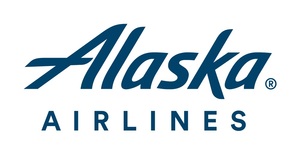Alaska Airlines makes significant investment in sustainable aviation fuel
Alaska is set to offtake 185 million gallons of sustainable aviation fuel from Gevo over five years beginning in 2026
SEATTLE, Aug. 3, 2022 /PRNewswire/ -- Alaska Airlines announced today it has finalized an agreement with biofuel company Gevo Inc., to purchase its most significant sustainable aviation fuel (SAF) offtake commitment to date – 185 million gallons of SAF over five years starting in 2026. This agreement was developed alongside others in the oneworld alliance.
"Using sustainable aviation fuel is a significant part of Alaska's five-part path to reach net zero carbon emissions, and alongside others in the oneworld alliance, we are committed to creating a more sustainable future for aviation," said Diana Birkett Rakow, senior vice president of public affairs and sustainability at Alaska Airlines. "SAF is the most immediate path we have toward decarbonization of aviation, but we recognize there is significant work required ahead – including public policy action – to make SAF a viable, affordable option at scale."
"Alaska is proud to play a role in advancing this critical market for sustainable aviation fuels," said Ann Ardizzone, vice present of supply chain at Alaska Airlines. "Making SAF commercially viable at scale requires strong partners and action on all fronts. We appreciate the partnership of suppliers like Gevo in tackling this challenge."
In April 2021, Alaska announced the company's commitment and roadmap to achieve carbon net zero by 2040, and established a five-part path to achieve that goal. The path includes operational efficiency, fleet renewal, sustainable aviation fuel, electric or hybrid-electric aircraft over the long term and credible carbon offsets only as needed to achieve our targets if technology does not advance fast enough to close the gap without. Of this path, sustainable aviation fuel provides the greatest opportunity to decarbonize in the near and medium term, and Alaska has been working for over a decade to first test and then use SAF.
In 2016, Alaska and Gevo made history by flying the world's first commercial flight using forest residuals from Seattle-Tacoma International Airport to Reagan National Airport in Washington, D.C., powered by a 20 percent blend of SAF. Today, Alaska is using SAF in its operations in California and works with multiple producers and other partners to use and facilitate the development of additional SAF supply in the future.
Alaska's most recent ESG report – its Care Report – outlines more detail on its goals and progress, and details specific challenges and actions needed to advance SAF. More information on Alaska's sustainability strategy is available at alaskaair.com/content/about-us/esg.
In September 2020, oneworld became the first global airline alliance to announce a target of carbon neutrality by 2050, establishing its commitment to long-term sustainability for the industry. The alliance followed up that commitment with an intermediate goal to achieve 10% SAF use across the member airlines by 2030.
About Alaska Airlines
Alaska Airlines and our regional partners serve more than 120 destinations across the United States, Belize, Canada, Costa Rica and Mexico, low fares and award-winning customer service. Alaska is a member of the oneworld global alliance. With the alliance and our additional airline partners, guests can travel to more than 1,000 destinations on more than 20 airlines while earning and redeeming miles on flights to locations around the world. Learn more about Alaska at news.alaskaair.com. Alaska Airlines and Horizon Air are subsidiaries of Alaska Air Group.
About Gevo
Gevo's mission is to transform renewable energy and carbon into energy-dense liquid hydrocarbons. These liquid hydrocarbons can be used for drop-in transportation fuels such as gasoline, jet fuel and diesel fuel, that when burned have potential to yield net-zero greenhouse gas emissions when measured across the full life cycle of the products. Gevo uses low-carbon renewable resource-based carbohydrates as raw materials, and is in an advanced state of developing renewable electricity and renewable natural gas for use in production processes, resulting in low-carbon fuels with substantially reduced carbon intensity (the level of greenhouse gas emissions compared to standard petroleum fossil-based fuels across their life cycle). Gevo's products perform as well or better than traditional fossil-based fuels in infrastructure and engines, but with substantially reduced greenhouse gas emissions. In addition to addressing the problems of fuels, Gevo's technology also enables certain plastics, such as polyester, to be made with more sustainable ingredients. Gevo's ability to penetrate the growing low-carbon fuels market depends on the price of oil and the value of abating carbon emissions that would otherwise increase greenhouse gas emissions. Gevo believes that it possesses the technology and know-how to convert various carbohydrate feedstocks through a fermentation process into alcohols and then transform the alcohols into renewable fuels and materials, through a combination of its own technology, know-how, engineering, and licensing of technology and engineering from Axens North America, Inc., which yields the potential to generate project and corporate returns that justify the build-out of a multi-billion-dollar business. Gevo believes that the Argonne National Laboratory GREET model is the best available standard of scientific-based measurement for life cycle inventory or LCI. Learn more at Gevo's website: www.gevo.com.
SOURCE Alaska Airlines

WANT YOUR COMPANY'S NEWS FEATURED ON PRNEWSWIRE.COM?
Newsrooms &
Influencers
Digital Media
Outlets
Journalists
Opted In






Share this article